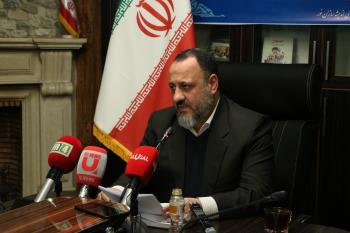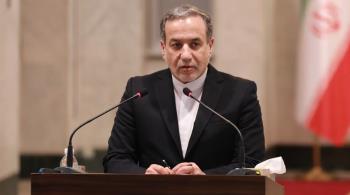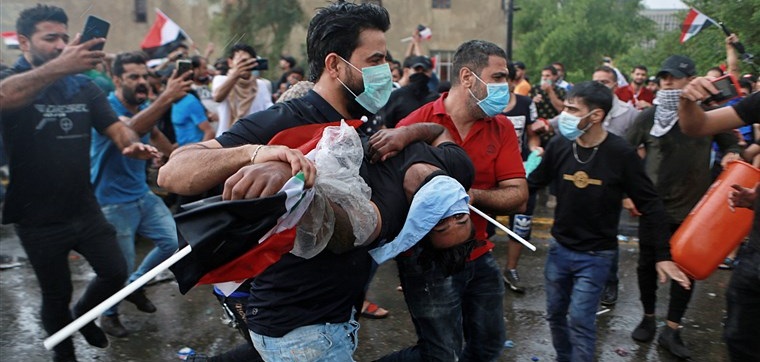Alwaght- Over forty days since outbreak of demonstrations in Iraq, people continue to protest in the streets of the capital and southern cities against corruption and poor services. Despite the news about winding down of the protests, news still come out talking about civilian deaths.
The Iraqi security and military sources now blame a “third party” responsible for killing of the protestors. Defense Minister Nejah al-Shomari, for example, recently presented evidence suggesting that the type of weapons by which people are killed are not used by the security forces and police and that very likely a third force is targeting the demonstrators. On November 15, while there were light demonstrations with small number of people, a hand-made bomb exploded killing a protestor and wounding 16 others.
Now the question is that who is directing such violent actions behind the scenes? What are their goals? Since the beginning, some home and foreign media in quite targeted propaganda tried to blame the Popular Mobilization Forces (PMF), the voluntary force founded in 2014 to fight ISIS terrorist group, for the actions. However, to make clarifications, a multi-level analysis is necessary.
Who is benefiting form continued protests?
Having in mind that violence and casualties during the protests will only compound the already twisted crisis in the Arab country, the question is that which groups, political parties, and actors involved in the Iraqi equations is benefiting from violence and insecurity in Iraq? Right answer to this question can largely lead to a third force behind targeting the Iraqi civilians. Right now, Iraq is led by a coalition government having representatives from the Shiites, Sunnis, and Kurds. The PMF is present in the government under Fatah alliance with 47 seats in the parliament. Fatah makes the second-largest bloc of the parliament and played an undeniable role in forming the new cabinet.
A majority of the political factions believed that addressing the poplar demands was a certain duty. They agreed that deep reforms in the government and the bureaucratic system are required to address the demands. They are, at the same time, hold the consensus that violence-run protests do not serve the national interests. So, the government on the one hand should do immediate measures to answer the demands and on the other hand the protestors should show patience and abandon violence. This will allow the conditions to return to normal and prevent additional costs on the government.
It seems that none of the political forces, mainly the PMF, want to see constant violence as it happened over past few weeks. Thus, while the protests are easing, only the party that wants to intensify the situation is responsible for killing of the civilians. In fact, parties that find interests in continued violence target people. What is clear so far is that the PMF never seeks complication of the situation in the streets.
In the name of PMF, in the interests of Iraq’s enemies
The PMF does not benefit from the continuation of the interests as it was formed following a fatwa in 2014 by the top Shiite cleric Ayatollah Sayyed Ali al-Sistani in opposition to ISIS terrorist organization that at the time seized large swaths of land from the Iraqi government. The PMF in its political manifesto announces itself as a follower of the orders of the grand cleric. Over the past few weeks, Ayatollah al-Sistani issued several statements regarding the demonstrations on the one hand asking the protestors to avoid damage to the public utilities and on the other hand calling on the security forces to show restraint in dealing with the demonstrators.
This issue is considered, the PMF never target the civilians. The fact is that the PMF is not a military and political force. Rather, its strategy rests in religious grounds and principles. Ayatollah al-Sistani, as a spiritual leader of the voluntary force, bans and condemns any use of violence and this is of course taken into consideration by the PMF.
The fingers of blame should be pointed at the enemies of Iraq and those unhappy with the current government in the country. The US, Saudi Arabia, and the Israeli regime rise on top here as they struggle to guide the protests to antipathy to Iran, a regional actor they fear the most as it holds considerable sway in Iraq and frustrates their regional plots.
The stances published by the American embassy in Iraq show that Washington is perpetuating the protests and drives them to violence. The US politicians have understood that a strong government in Iraq and return of calm to the country will mean the end of their military presence and influence in Iraq. Ongoing protests will weaken the government and feed the crisis.
In addition to Washington, Riyadh and Tel Aviv are zealous to see legitimate demands derail to demonstrations with an anti-Iranian path. Sending weapons and cash for sabotage is an easy job they undertake. They hope to reignite the calming protests using their agents who target the people with live fire to gain foothold against the backdrop of crisis and insecurity in the country.



























